If you’re someone who’s serious about maintaining a healthy lifestyle and nourishing your body with balanced nutrition, you’ve probably realized how crucial it is to keep track of what you eat. Enter the world of nutrition tracking apps—a modern approach that takes guesswork out of your daily meals. Today, I’m diving into the best nutrition tracking apps designed specifically for health-conscious individuals seeking balanced nutrition solutions. Whether your goal is weight loss, muscle gain, managing diabetes, or simply eating mindfully, there’s an app that can support your journey.
This comprehensive guide will unravel why nutrition tracking matters, the key features to look for, and give you detailed, honest reviews of eight top apps that stand out in the market. From calorie counting and macro monitoring to integrating hydration tracking and behavioral coaching, these apps are transforming how we understand and control our nutrition. So, let’s embark on the path to informed, balanced eating with tools that can really make a difference!
Understanding Nutrition Tracking: Why It Matters for Health-Conscious Individuals
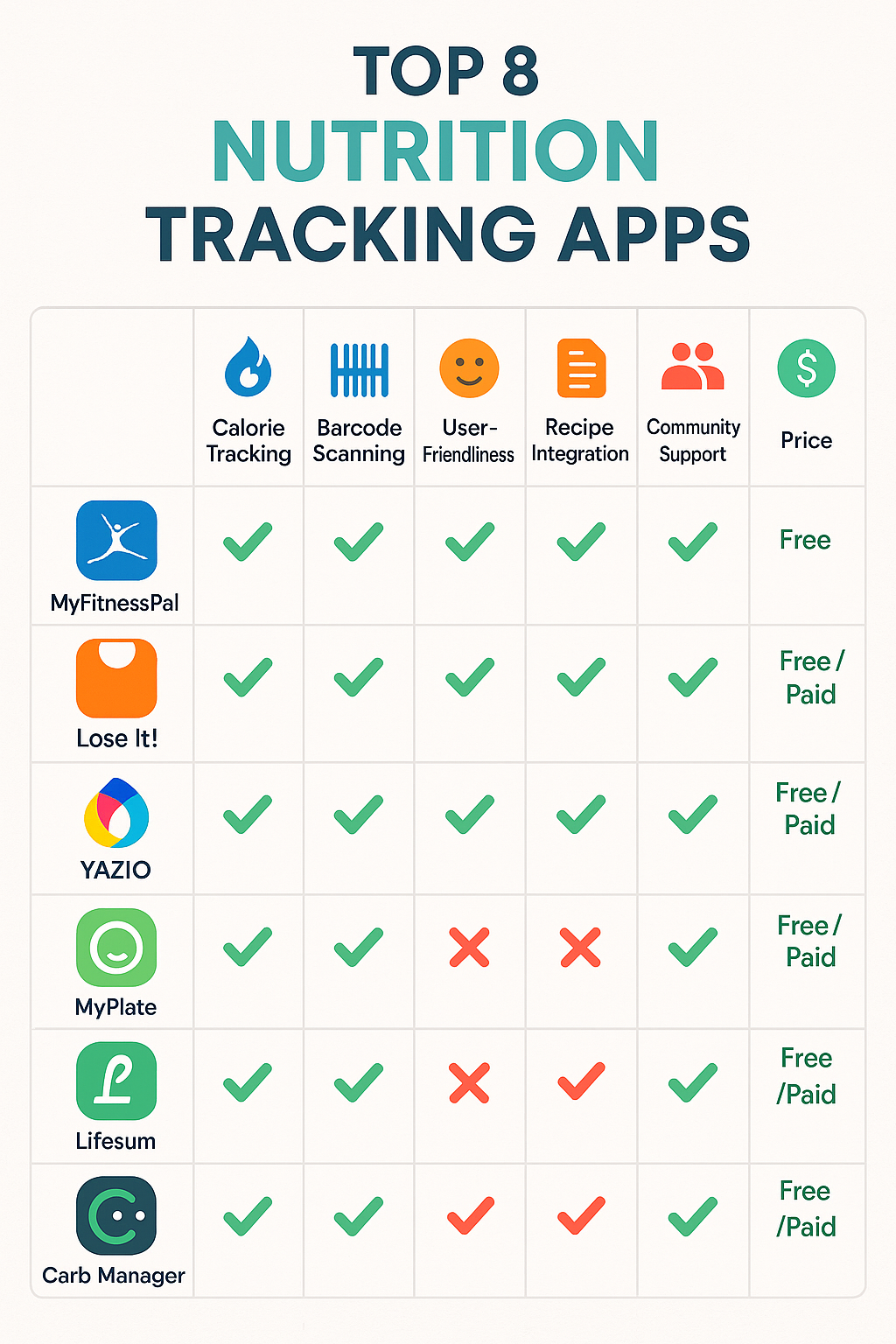
Nutrition tracking isn’t just a trend; it’s a powerful lifestyle strategy. When you actively log your food intake, you empower yourself with insights that promote better dietary decisions. Scientific research and expert guidelines emphasize that balanced nutrition—aiming for the right mix of calories, macronutrients, and micronutrients—is the cornerstone of optimal health and disease prevention.
The Role of Calorie Counting and Macronutrient Monitoring in Balanced Nutrition
Calorie counting often gets a mixed reputation as overly restrictive or tedious, but in practice, it can be incredibly enlightening. Your body needs energy from food to perform everything—from daily activities to intense workouts. However, consuming too many or too few calories can disrupt your health goals.
Macronutrients—protein, carbohydrates, and fats—play distinct roles:
- Protein supports muscle repair and immune function.
- Carbohydrates fuel energy and brain activity.
- Fats aid in hormone regulation and nutrient absorption.
Tracking these macronutrients ensures you’re not just eating the right amount of calories, but also getting the optimal fuel mix. For example, if you’re aiming for muscle gain, monitoring your protein intake is critical.
Several apps offer personalized macro goals, making it easier to match your individual needs. Rather than guessing, you get data-backed targets that adapt as your lifestyle changes.
Tracking Micronutrients and Hydration: Beyond Just Calories
While macros get most attention, micronutrients such as vitamins and minerals are the unsung heroes of health. Deficiencies or excesses can lead to fatigue, weakened immunity, or chronic conditions. Apps that provide detailed insights into micronutrients can reveal hidden gaps in your diet.
Hydration is another vital but often overlooked component. Proper water intake supports digestion, circulation, and energy levels. Some advanced nutrition apps include hydration tracking to keep this essential habit front and center.
Key Features to Look for in the Best Nutrition Tracking Apps
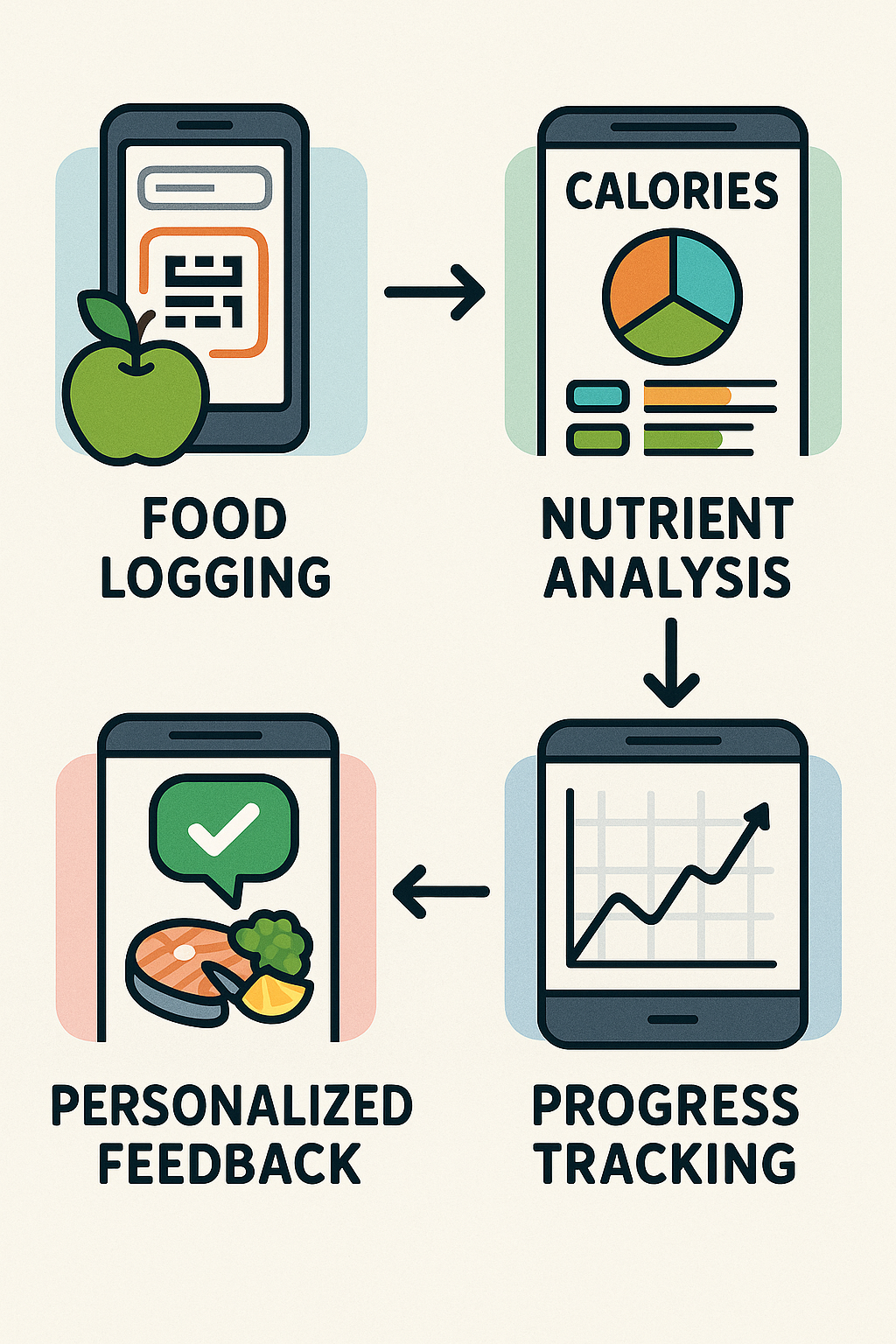
Choosing an app means picking a companion for your health journey, so let’s explore what makes an app truly stand out.
Comprehensive Food Database and Barcode Scanning Capabilities
A robust food database with millions of items means you can log almost any food you eat, including fresh produce, packaged goods, and popular restaurant menus. Barcode scanning accelerates logging by eliminating manual entry, reducing errors and saving time.
Look for apps that update their databases regularly and allow adding custom foods or recipes for greater accuracy.
Personalized Nutrition Goals and Dynamic Meal Planning
Apps that let you set personal nutrition goals based on your age, weight, activity level, and preferences are more effective than generic tools. Dynamic meal planners that adjust based on your progress, dietary choices, and even budget can guide your day-to-day eating.
Meal planning features with recipe integration save you from scrambling for ideas and help keep your nutrition balanced.
Integration with Fitness Trackers and Holistic Health Monitoring
Your nutrition doesn’t exist in isolation. Integration with fitness devices or apps tracking activity, sleep, and vital signs provides a 360-degree health overview. This synchronization allows your nutrition app to dynamically adjust calorie or macro targets based on your physical activity.
Consider apps that sync with Apple Health, Google Fit, or popular fitness bands.
User Experience: Intuitive Interfaces and Supportive Communities
The best apps are ones you want to use daily. An intuitive interface that’s easy to navigate reduces friction. Features like reminders, insights, and personalized nudges encourage consistency.
Community support, such as forums or challenges, adds motivation and accountability—a crucial element for lasting habits.
Detailed Reviews of the 8 Best Nutrition Tracking Apps
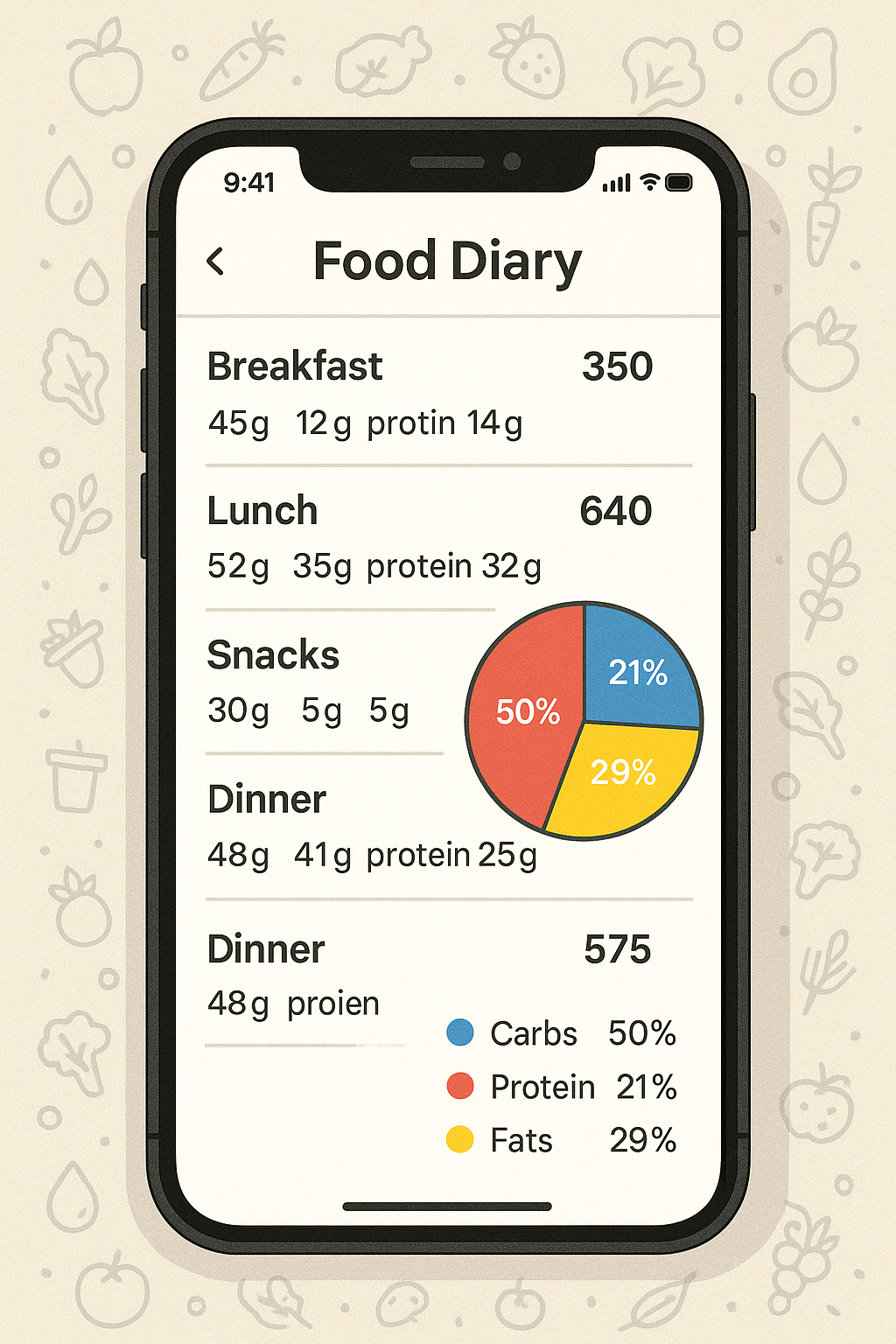
Now, let me walk you through the top contenders, highlighting their features, pricing, ideal users, and what sets each apart.
MyFitnessPal: Extensive Food Database with Community Engagement
Overview:
MyFitnessPal is a household name renowned for its massive food database housing over 14 million items. It supports both Android and iOS users, making it accessible for nearly everyone.
Meal Planning and Exercise Tracking Features:
The app not only logs foods but also tracks workouts, offering insights into calories burned versus consumed. Premium+ subscribers can access personalized meal plans tailored to preferences and goals.
Pros:
– Extensive food database minimizes guessing.
– Barcode scanner speeds logging.
– Active community forums provide motivation and advice.
– Integration with many fitness apps.
Cons:
– Some advanced features require a paid subscription.
– Interface can feel overwhelming at first to beginners.
Ideal for:
Anyone looking for a comprehensive, social nutrition tracker who wants access to an enormous food library and exercise integration.
Pricing:
Free basic version; Premium+ subscription unlocks meal planning, detailed insights, and ad-free experience.
Lifesum: Holistic Wellness with Personalized Meal Plans and Water Tracking
Overview:
Lifesum delivers more than calorie counting—it focuses on a balanced lifestyle with personalized meal plans, macro tracking, and hydration monitoring.
Key Features:
– Barcode scanner and food diary.
– Water intake tracker ensures proper hydration.
– Recipes and meal plans tailored to diets like keto, vegan, or low-carb.
Pros:
– Clean, user-friendly design.
– Strong meal planning tools.
– Supports a variety of diet preferences.
– Encourages healthy habits beyond calories.
Cons:
– Some features locked behind subscription.
– Less community engagement compared to others.
Ideal for:
Health-conscious users wanting a balanced approach combining nutrition and hydration with a variety of diet plans.
Pricing:
Free download with in-app subscriptions for advanced features.
YAZIO: Balanced Nutrition and Intermittent Fasting Made Simple
Overview:
YAZIO supports both traditional nutrition tracking and popular intermittent fasting strategies, backed by a recipe database and activity syncing.
Highlights:
– Complete calorie and macro tracker.
– Pre-set fasting programs for flexibility.
– Integration with fitness trackers for automatic activity-based adjustments.
Pros:
– Combines fasting and calorie counting elegantly.
– Simple and clear interface.
– Recipe ideas support variety and balance.
Cons:
– Payment options exclude Shop Pay.
– Some premium features require subscription.
Ideal for:
Those interested in intermittent fasting plus balanced nutrition.
Pricing:
Free base version; premium plan available.
Foodnoms: Privacy-Focused, Customizable Nutrition Tracking for Apple Users
Overview:
Foodnoms is a sleek, privacy-first app exclusive to Apple devices that supports fully customizable nutrition goals.
Key Features:
– Custom macro and micronutrient targets, including fiber, caffeine, and alcohol.
– Fast food logging with barcode and nutrition label scanning.
– Syncs with Apple Health for dynamic calorie goals.
Pros:
– No ads, excellent privacy practices.
– Powerful customization for different needs.
– Supports intermittent fasting tracking.
Cons:
– Available only on iOS and macOS (no Android).
– Advanced features require subscription.
Ideal for:
Apple users seeking a private, customizable nutrition tracker.
Pricing:
Free basic version; Foodnoms+ premium subscription unlocks full features.
WeightWatchers (WW): Comprehensive Wellness Programs with Grocery Integration
Overview:
A pioneer in wellness, WW now blends nutrition tracking with holistic health programs and grocery delivery partnerships for convenience.
Features:
– Personalized nutrition plans focused on weight management.
– Grocery integration with Instacart for easy shopping.
– Community challenges and support.
Pros:
– Offers structured programs, not just tracking.
– Grocery delivery integration is a game-changer.
– Broad wellness focus.
Cons:
– Company restructuring may impact service continuity.
– Subscription can be costly.
Ideal for:
Users looking for a full program combining nutrition, exercise, and store-to-door ingredients.
Pricing:
Varies by membership plan; visit WW website for details.
Noom: Behavioral Science and Coaching for Sustainable Weight Management
Overview:
Noom stands out by blending nutrition tracking with personalized coaching based on behavioral science.
Highlights:
– Certified coach support via app.
– Cognitive Behavioral Therapy (CBT) principles to encourage habit change.
– Tracking food intake, activity, and progress.
Pros:
– Emphasis on psychology helps tackle emotional eating.
– Community support keeps users accountable.
– Clear, intuitive interface.
Cons:
– Subscription model may be pricey for some.
– Not strictly a nutrition app—it blends many wellness aspects.
Ideal for:
Those seeking long-term weight management with professional guidance.
Pricing:
Subscription only; see Noom site for current plans.
Cronometer: In-Depth Micronutrient Tracking with Community-Inspired Merchandise
Overview:
Cronometer is famous for its detailed micronutrient tracking, perfect if you want to dive deep beyond macros.
Features:
– Tracks vitamins, minerals, amino acids precisely.
– Integrates with fitness apps and devices.
– Offers official merchandise for wellness enthusiasts.
Pros:
– Best for micronutrient analysis.
– Reliable food database.
– Supportive community.
Cons:
– Interface may seem technical to beginners.
– Premium subscription necessary for full features.
Ideal for:
Users who want a high level of nutrition detail and community connection.
Pricing:
Free version available, premium subscription for extra features.
MacroFactor: Advanced Macro Tracking with Dynamic Coaching Algorithms
Overview:
MacroFactor uses adaptive algorithms and fast food logging to tailor macronutrient plans specifically to your metabolism and lifestyle.
Key Features:
– Personalized macros based on progress and inputs.
– Weekly smart coaching check-ins.
– Ad-free experience with fast logging tools.
Pros:
– Auto-adjusts targets intelligently.
– Clean, fast interface respected by serious trackers.
– Connects with Apple Health and Google Fit.
Cons:
– Subscription costs may deter casual users.
– Focused on macro tracking, fewer community features.
Ideal for:
Serious nutrition trackers aiming for precise macro control.
Pricing:
Subscription-based, with 7-day free trial.
Comparing the Best Nutrition Tracking Apps: Which One Suits Your Needs?
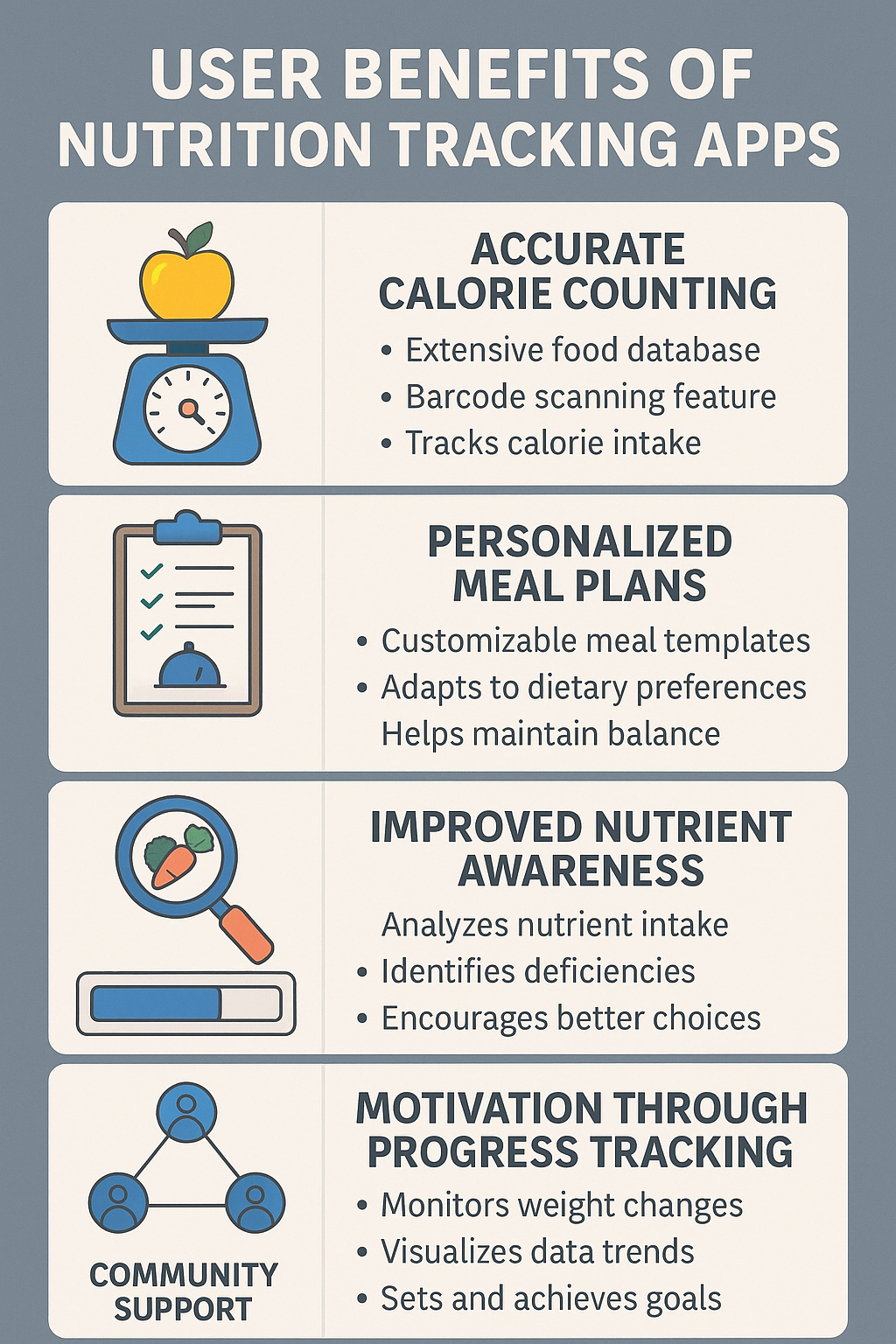
Best for Beginners: User-Friendly Features and Simplified Tracking
Apps like Lifesum and MyFitnessPal are excellent starting points because of their extensive databases, easy logging, and community support that can guide newcomers.
Best for Macro Tracking and Muscle Gain Support
MacroFactor and MyFitnessPal shine here with personalized macro programs and fitness tracking integration.
Best for Mindful Eating and Non-Calorie Counting Approaches
Noom stands apart with its behavior-based guidance, while Foodnoms supports privacy and flexibility for more mindful food logging.
Best Free Apps vs. Premium Subscriptions: What’s Included?
Most apps provide basic free functionalities like calorie counting and food logging. Premium tiers usually unlock meal planning, detailed micronutrient tracking, coaching, and ad-free experiences—worth it if you want serious commitment.
How to Maximize Success Using Nutrition Tracking Apps
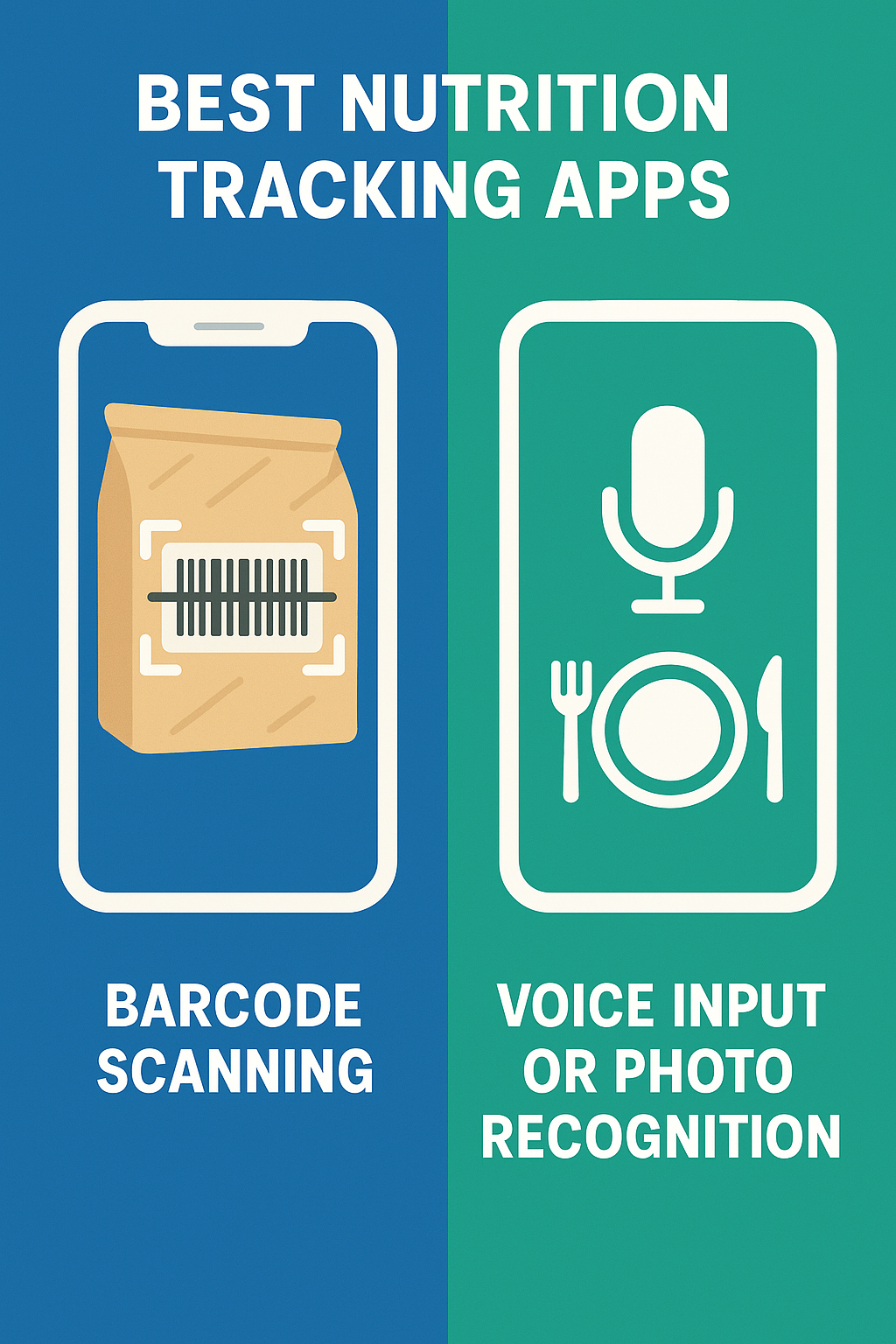
Setting Realistic and Personalized Nutrition Goals
Avoid the “one-size-fits-all” mindset. These apps often let you tailor your goals based on your health status, preferences, and lifestyle—take advantage of that!
Utilizing App Features for Meal Planning and Recipe Integration
Meal planning keeps your nutrition balance intact and saves time. Try apps that let you create or import recipes and plan your meals around your goals.
Leveraging Behavioral and Community Support for Long-Term Habits
Stick with communities and coaching that motivate you. Noom’s behavioral science approach or MyFitnessPal’s forums can provide accountability and encouragement.
Syncing Apps with Fitness Devices and Hydration Tracking Tools
Comprehensive health comes from the bigger picture. Sync apps with smartwatches, pedometers, and hydration trackers to keep all your health data in one place.
Unique Insights: The Emerging Role of AI and Privacy in Nutrition Tracking
AI-Powered Recommendations and Food Logging Enhancements
Cutting-edge nutrition apps increasingly use AI to offer smarter food suggestions, automated logging based on photos or eating patterns, and adaptive nutrition plans that evolve with you.
Privacy Considerations and Transparency in Data Usage
With personal health data at stake, privacy-focused apps like Foodnoms are gaining ground by avoiding ads, trackers, and sharing user data. Always review privacy policies to understand how your info is handled.
Conclusion: Choosing the Right Nutrition Tracking App for Your Balanced Lifestyle
Navigating the sea of nutrition tracking apps can feel overwhelming, but understanding your unique needs clears the waters. Whether you prioritize extensive databases, personalized coaching, micronutrient insights, or privacy, there’s an app designed to guide you effectively. The eight apps I detailed—MyFitnessPal, Lifesum, YAZIO, Foodnoms, WeightWatchers, Noom, Cronometer, and MacroFactor—represent the current best in class for balanced healthy living.
The key is consistent, mindful use: set realistic goals, leverage the features you find valuable, and embrace the behavioral and social support aspects these apps provide. Together, these elements create a sustainable path to better nutrition and well-being. So, why wait? Grab the app that feels right for you, and start your journey toward balanced, informed eating today!
FAQs
1. What are the best nutrition tracking apps for weight loss?
Apps like Noom, MyFitnessPal, and WW offer structured weight loss programs combined with nutrition tracking and behavioral support, making them great choices for weight management.
2. Which nutrition tracking apps include barcode scanners for easy food logging?
MyFitnessPal, Lifesum, YAZIO, and Foodnoms all include barcode scanning features to simplify and speed up meal logging.
3. Are there free nutrition tracking apps for iPhone and Android?
Yes, MyFitnessPal, Lifesum, YAZIO, and Cronometer offer free versions with optional premium subscriptions for advanced features.
4. Which apps are best for tracking macros for muscle gain?
MacroFactor and MyFitnessPal provide detailed macro tracking and fitness integration, ideal for muscle gain goals.
5. Can nutrition tracking apps help with diabetic meal planning?
Apps like Lifesum and MyFitnessPal allow micronutrient and carb tracking, supporting diabetic-friendly meal management. Consulting with a healthcare provider for personalized advice is recommended.
Quick Takeaways
- Tracking both macronutrients and micronutrients leads to a more balanced nutrition approach.
- Look for apps with expansive food databases and barcode scanning for ease of use.
- Personalized goals and dynamic meal planning help maintain motivation and progress.
- Integration with fitness and hydration trackers offers a holistic view of your health.
- Privacy matters—consider apps that prioritize data security, especially if sensitive health data is involved.
- Community and coaching features can significantly boost long-term success.
- Free versions are available, but premium subscriptions often unlock powerful tools worth considering.
Embarking on your nutrition tracking journey with the right app is one of the smartest steps you can take toward a healthier, balanced life. Dive in, stay consistent, and watch your wellness flourish!
